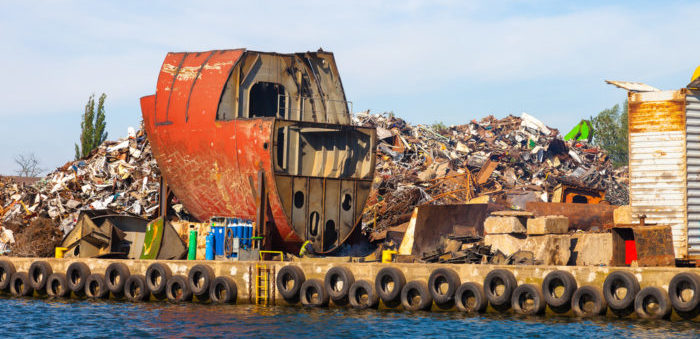According to Nikkei, Mitsubishi Heavy Industries, the Japanese conglomerate, is in talks to sell its Koyagi plant, the main one of two located in Nagasaki, to Oshima Shipbuilding, the country’s third-largest shipbuilder based in Saikai, Nagasaki Prefecture.
The parties are yet to agree on the sale price and MHI is planning to announce the sale most probably during next week.
[smlsubform prepend=”GET THE SAFETY4SEA IN YOUR INBOX!” showname=false emailtxt=”” emailholder=”Enter your email address” showsubmit=true submittxt=”Submit” jsthanks=false thankyou=”Thank you for subscribing to our mailing list”]
Notably, with the sale, MHI will withdraw from construction of large vessels carrying resources such as liquefied natural gas (LNG).
It is said that although Japanese builders together represent over 20% of the market, there are more than 10 of them, making individual companies challenging to compete with larger Chinese and South Korean rivals offering lower prices.
Recently, it was said that Hyundai Heavy Industries, South Korea‘s top shipbuilder, is merging with third-largest Daewoo Shipbuilding & Marine Engineering. The two merged companies will together have almost 40% of the global market share.
What is more, following contradictory statements and after more than 10 years of planning, China announced the merger of the country’s two state-owned shipbuilding giants, China State Shipbuilding Corp (CSSC) and China Shipbuilding Industry Co (CSIC), in a move expected to significantly boost competitiveness of Chinese shipbuilding industry.
The merger aims to enable China to establish a shipbuilding giant with a combined revenue up to 1 trillion yuan (US$141.5 billion), building from warships to oil tankers, according to local media.
This move creates a significant risk for put South Korean rivals, which are struggling as a result of Chinese competition.
An earlier report from Bloomberg indicated that if this merger is completed, the revenue of the new entity would be twice than this of South Korea’s three largest shipbuilders, Hyundai Heavy Industries, Daewoo Shipbuilding & Marine and Samsung Heavy Industries.
Nikkei further reports that as environmental regulations will be tightened in 2020, including control on the sulfur content of ship fuels, competitiveness of ships with energy-conserving features is expected to increase.
































































